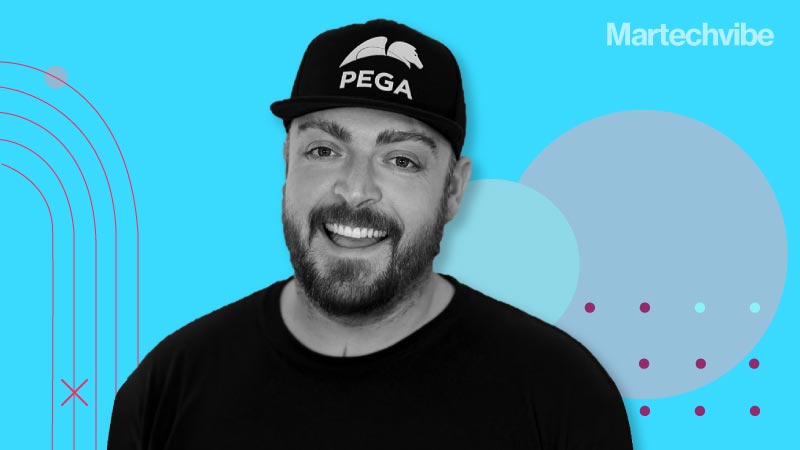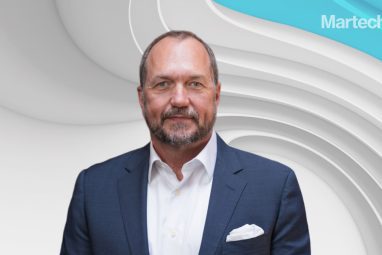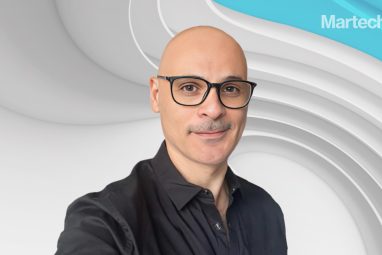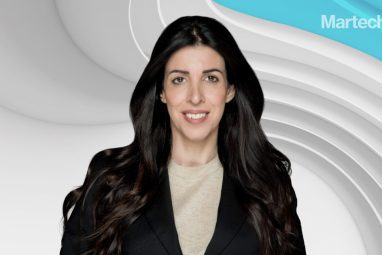Turning Customers Into Fans
Musician-turned-CX professional James Dodkins shares his views on the parallels between a musical keynote performance, and delivering a rockstar customer experience.
Topics

“Metallica doesn’t need a conductor. They wrote the songs. They recorded the songs. They played the songs. An orchestra is very different, and a lot of businesses would like to think of themselves as the business equivalent of Metallica, but unfortunately they’re not. They’re the business equivalent of an orchestra. Large, complicated, lots of technology. Delivering processes and experiences that they had no hand in writing themself. So they need a conductor,” says James Dodkins, CX Evangelist at Pegasystems and bestselling author of Foundations For Customer Centricity.
From being a guitarist in a heavy metal band, Dodkins now calls himself a CX rockstar. In his new role, he delivers musical keynotes explaining how customer experience is no different from a musical performance.
In our interview with him, Dodkins says a business should organise people like a football team.
Excerpts from the interview;
What is a CX Evangelist? How does your experience as a musician help shape your current profile?
Customer experience evangelist — absolutely best job in the world — because I get to talk to people all day and night about customer experience: what makes customer experience great, what are the best practices, thought leadership around customer experience, future trends, technology, what the best companies in the world are doing, what the worst companies in the world are doing! I don’t talk about the software that we sell, that’s very rare. I just talk about the amazing experiences that we can make come alive.
I don’t talk about music in every conversation, but I think why the music career gave me a good hold on customer experience was that for me, it’s the same. Putting on an amazing show for your fans night after night is exactly the same as delivering amazing experiences for your customers day after day.
And arguably, as companies, we all want to turn our customers into fans. That’s what artists do; they go out there to try and turn people into fans. There’s so many parallels around things we can do on a daily basis that the best rock bands in the world do, the best pop artists in the world do.
Tell us the core message of your keynotes. How do you make a corporate topic like CX work with music?
When I decided I would talk to people about my music career and how to build customer experiences through the lens of music, I thought it was probably about time that a keynote speaker should consider the experience of the people — experiencing the talk about customer experience. I thought, why not make a fun, engaging, musical customer experience keynote? So, that’s what I did.
The core message is about delivering rockstar customer experiences. Music isn’t really about music – it’s about relationships. It is exactly the same in customer experience. Customer experience isn’t about experience. It’s about relationships, and to understand that, we need to understand what a relationship is. All a relationship is, is the sum of your memories with another party. That could be a friend, a family member, a company, a rock band.
What are memories? Memories are the way we store emotions that we feel in real-time. What are emotions? Emotions are things that get created from experiences, which can be good or bad. What are experiences? Experiences are just lots of little moments bundled together. So if you really want to improve the relationship you share with your customers, you first need to improve the moments you share with them. The exciting thing about this is not all moments between customers and companies are created equally.
Deliver a moment that’s so powerful, so memorable, so moving, so impactful, and you can turn a customer into a fan in one moment.
What is the most common question you have received from your audience about customer experience through your stage performances so far?
The most common question I get is, what is customer experience?
It’s the context of the question. It’s not what customer experience is? It’s like, what is customer experience? It’s a different question. So, a lot of questions are around the definition of customer experience. The way I define it is quite different from how the broader customer experience community defines it. I split it up, because there’s customer experience – the discipline, there’s a customer’s experience, and there’s good customer experience.
A lot of times, people will say, ‘What is the definition of customer experience?’ and people go, ‘A journey that is easy, fast and convenient..’ No. We’re not asking you what good customer experience is, just what customer experience is. “It has to be convenient.” It gets on my nerves, because if you can’t describe what customer experience is, then you’ve got no business telling people what good customer experience is.
For me, customer experience as a discipline is a business term used to understand and improve the relationship a company has with its customers. Now, a customer’s experience is the sum of the thoughts, feelings, and interactions the customer has on the journey towards achieving a goal or an outcome. When it comes to a good customer experience, that’s a conversation for another day because there’s lots of things that go into that.
When people ask what customer experience is, they expect a quick answer; sometimes it can’t be a quick answer. Sometimes you need to dig a little deeper — do you mean customer experience as a job title, a discipline, or an actual thing?
What was your last musical performance about CX? How did you start your keynote?
I did one close to Amsterdam for a company called Rabobank. They had a big celebration day called Proud of Pega. Rabobank does some really cool stuff with our software and they get together periodically to show each other what they’ve done – all the cool experiences and the wins they’ve had with customer experience.
They asked me to come and do the musical keynote, so I opened up the day with that.
I come out playing the guitar, and my first point is about nailing the intro, about first impressions, trying to make sure that first moment you have with your customer is memorable and impactful. At the very end, what I do is I get everyone in the room on their feet. I split them into sections, and I teach them a different rhythm. So one part of the room is clicking, another part’s clapping, and so on, and this rhythm comes together and I play with them. So the whole room becomes part of my band.
And the whole point of that is to show journey orchestration. Where Pegasystems works well is with large, complicated environments – that’s our sweet spot. And I look at it like an actual orchestra. You’ve got 80+ people in an orchestra, they’re all playing different instruments. You’ve got woodwind, brass, percussions, strings, loads of different instruments, and they’re all trying to individually play pieces of music that they didn’t write themself, to try and deliver a nice and cohesive piece of music to the audience.
That’s very different from a rock band. Four people that wrote the music themselves, they don’t need a conductor. So Metallica, for example, doesn’t need a conductor. They wrote the songs. They recorded the songs. They played the songs. An orchestra is very different, and a lot of businesses would like to think of themselves as the business equivalent of Metallica, but unfortunately they’re not.
They’re the business equivalent of an orchestra. Large, very complicated, lots of technology. Delivering processes and experiences that they had no hand in writing themself. So they need a conductor. And that’s what I try and show them. I try and orchestrate the experience to show the power of AI orchestration, which is what Pega does really well.
If you liked reading this, you might like our other stories
Players Need To be Wary of Power Concentration in ChatGPT
Is Omnichannel Causing More Challenges Than Solutions?









































































































